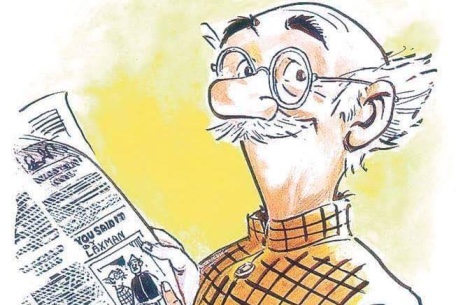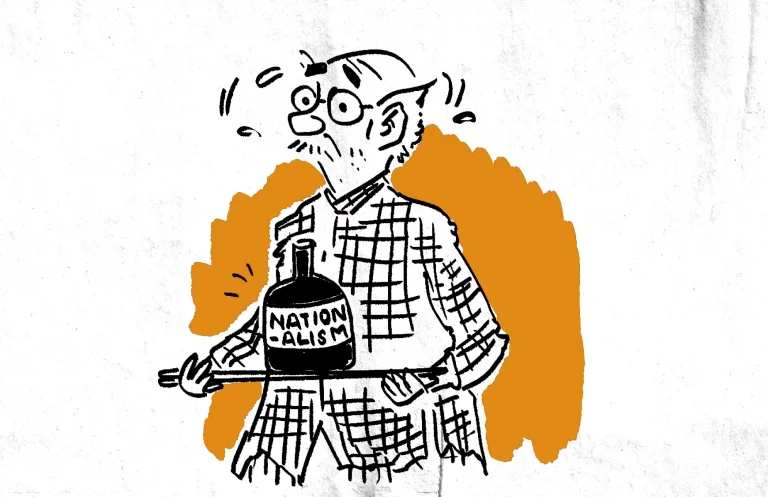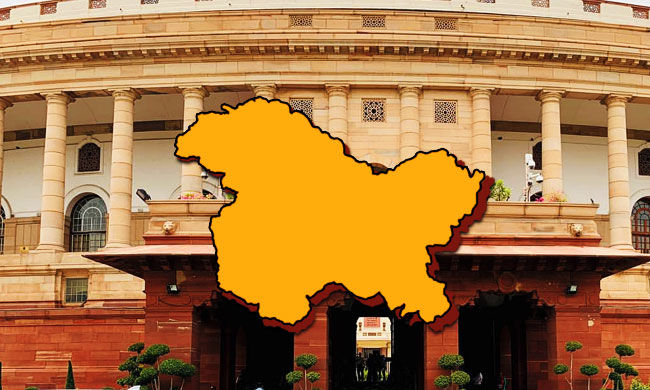Independent indeed, but are we free?
Tanmay is a management professional with educational qualifications from Ashoka University and St. Xavier’s College, Kolkata. He is an aspiring writer on matters of life, and wishes to follow his passions in pistol shooting and photography.
Whenever I sit to write something, I put on some good instrumental music in the background. That ranges anywhere from the classics of Mozart to the best works of Hans Zimmer. Each of these send me to a different place. But the one place which I like to visit most often is my convent school. And the one tune which promptly sends me there is the Raag Desh. Raag Desh – the version by Stephen Day quickly sends me back to the independence and Republic day celebrations of school days – where we used to drown into the glory of the freedom fighters in our history textbooks and museums, and marvel on the pillars of the modern Indian identity – culture, diversity, polity, military, science, arts, and their achievements.
As I listen to Raag Desh now, I feel the same set of emotions along with a sense of pride which have been imbibed in me since childhood when I used to celebrate the nation’s freedom. But today, as I think deeper, I wonder that when we celebrate Independence day, can we celebrate freedom? One might argue that historically from British rule, yes, we are free. We are not dependent on the governance and rules of a foriegn entity anymore. We are a sovereign – we can determine our own rules, laws, and policies. But are we actually free in the most absolute sense of the term “freedom”? Can we actually use Independence and freedom interchangeably? Moreover, has our independence allowed us to have the most basic of liberties without any hindrances?
Make no mistake, I’m not just referring to the situation today where we are most definitely under the loss of a lot of basic liberties. Ever since our Independence from the British Raj in 1947, we have constantly been under the shackles of one ideology or the other. Ideologies have not just guided, but also defined the politics, economic decisions, societal thinking processes, and our interactions with each other and with the world. Having borne the brunt of religious disharmony, and in the dearth of resources and enterprise, we chose nation-building as a priority, and our political economy in the first half century of the independence was driven by Nehruvian-socialist ideology.
Given the deteriorating state of the economy and polity, India soon knew that it had to free its development from the socialist ideology. Unlike pragmatic issues, ideologies are based on strong belief systems. It is hard to fight with belief systems, especially when such systems are fuelled by power. A resistance to the socialist ideology came at a cost, in the way of a total emergency and near-dictatorship. It was only with the efforts of the judicial checks and balances, and with the falling of the ideological heads, that we could begin to move away.
The Nehruvian socialism collapsed as did the Soviet Union, and we were staring at the liberal economic order, the only possible economic route. With limited scope for movements in economic ideology, there was an ideological vacuum in mainstream Indian politics, which was soon getting captured by religion. The Mandir and Mandal movements, gathering momentum from the grassroots soon became the driving factors of political dialogue, only overshadowed for limited periods by pragmatic issues such as economic growth, governance, and federalism (coupled with local politics).
The hegemony of the socialist economic ideology was natural and ubiquitous across the nation. But the religious ideology today has been fed to us and has clawed its way to be a hegemon. In the later half of the past decade, we saw a lot of the policy and governance changes guided by ideology. One can dare say that some of these decisions were even made to sustain and legitimise the very ideology. And like in the past, resistance to this ideological hegemony comes with its own costs – curbs on civil liberties, threat to privacy and freedom of expression, financial freedom, etc.
Connecting the dots, one can say that the same will be true for any other ideology which might become a hegemon. The question remains – would it be worth waiting for the redundancy of an ideology to kill its hegemony? I would say it might not. Also, there is always a risk that an ideology might have the buy-in of a lot of different sets of representatives or political parties, making it harder to become redundant.
India’s diversity is a boon. As of today, diversity alone can make sure that even within religious or economic ideological hegemony, a single ideology doesn’t dominate for long. However, this diversity also makes sure that ideologies never become trivial and go on the back-burner. Every political decision begins with what is right or what is wrong. The concept of right or wrong begins with opinions. Opinions stem from ideologies – and there are myriads of ideologies in the diverse Indian society.
We can never be free from ideology, as it is the ideology that is dependent on us and feeds on our belief systems. Also, Ideologies are indeed important. But we have to be free from ideological hegemony to start moving into the direction of freedom.
Former Pepsico and Apple Inc CEO John Sculley once mentioned that we are living in exponential times. While he made that claim in the context of tech innovations, I believe the same holds true for societal changes too, since a lot is now driven by tech. Societal interactions have changed diametrically in the past decade and a half. For India, that has meant that each individual has an independent voice and a potential shopfront. And with maturity coming into B2B and B2C digital adoption, and major public and private digital infrastructures being built, the societal and economic interactions will change further.
This has allowed individuals to shape and design their own societal and economic interactions, undermining the leverage of the regimes and their ideologies in defining the same. Secondly, it has created a two way door, making it easier for governments, and therefore ideologies to get into people’s lives. As Shekhar Gupta puts it, “when a powerful party gets into people’s personal lives, results are really bad”. In my opinion, regardless of parties, democracies, or autocracies, this applies to ideologies, more than anything else.
The Chinese Communist Party, which is the custodian of the communist ideology in China, had last year added “data” as a factor of production along with the existing ‘land’, ‘labour’, ‘capital’, and ‘entrepreneurship’. Consequently, it has now started to control the flow of data. And has effectively punctured its booming digital economy. Of Course there are other socio-economic layers in the execution of the ideology, such as to help bring down living expenses, but the overarching theme is driven by ideology, which can affect economic growth.
All that said, the question is whether we can develop counter-balances and leverages against ideological hegemony. In my opinion, we already have these. One can say that we need better public discourse and so that citizens understand the gravity around these aspects.
To India’s credit, it is not in a position where it draws its identity from the ideological hegemony of the moment, both as a nation and as a society. To a major part of India’s collective consciousness, India’s identity is still defined by the aspects I had mentioned above – culture, diversity, polity, military, science, arts, and their achievements. To top that, we Indians take pride in such an identity.
An all-encompassing identity such as this works as a counterbalance against an ideological hegemony, and stands as a ray of hope for India. Moreover, a pluralist identity such as ours, in all aspects – social, economic, and political, makes it harder for a single ideology to take over the realms of our collective identity. Talking from an IR perspective, this identity is exactly what fuels India’s Soft Power. Though some can argue that our majoritarian regime has been deteriorating the soft power potential, I for one have strong hopes for our global stature.
However, our identity is not an active leverage against ideological hegemony. It can merely act as a passive counterbalance. For our democracy and governance to be free of ideological hegemony, we need strong systems of issue-based politics and interventions by institutions respectively.
Almost everything in India is driven by politics, and more often than not, the politics in itself is ideology-based, rather than issue-based. Issue-based politics – the most obvious yet the most difficult of leverages against ideology-driven order. For this to take the front-seat, Indians from all walks of life have to be socially educated, and more importantly, should have the willingness to prioritise issues over ideology. That is India’s strongest preemptive check against ideology-driven order. India’s federal structure does make a strong underpinning for issue-based politics, and we have even seen success in certain moments. However, issue-based politics has won battles but lost the wars. Pathetic execution of legislation, the failure of our Parliamentary functioning with disorderly sessions, adjournments, and rashed bills have also made issue-based politics lose its sheen.
While we can celebrate Independence of the nation, we are not certainly in a position to celebrate the independence of our institutions – financial custodians, investigative authorities, joint parliamentary committees, and least of all the Election Commission (after the CEC role’s controversy in 2019 general elections and the national covid crisis post 2021 WB state elections). Institutions are paramount to the functioning of any democracy, and I can daresay that more so to a relatively less mature democracy like India.
Institutions can make or break a democracy. They can take corrective measures against ideology-driven policies, and can even amplify the agendas of such regimes. The judiciary, for example, created a permanent shrine in the constitution not just against the wrath of laws such as the land reforms, and the central control of Government over lawmaking in the landmark Keshvananda Bharati case. On the other hand, in my opinion, it set a very bad precedent last year with the way it handled two habeas corpus pleas last year, by not asking the Government to produce the detainees from Kashmir, post its overnight clampdown on citizens in the region.
On the other hand, for quite some time now we have been hearing the phrase – authorities ‘unleashed’ by the government’. This is not new to Indians. Such ‘leashing’ has been happening for decades, with the worst form seen back in the 70s, during the Emergency era, when the institutions lost all of their independence and were working under the whims of the then leader. ~50 years since, India has still not been able to decouple its institutions from the politicisation of government.
If investigative entities like CBI, NIA, ED, for which independence is paramount to conduct fair probes, fall under the purview of a ministry, and as a consequence, a minister (who also happens to be a member of a party driven by ideology), then the system looks fundamentally flawed. It is a mere mockery that our judiciary, an “independent” third pillar of democracy, is “dependent” on the Parliament to fill up the vacancies for high court judges. On a side note, there are 455 empty positions for high court judges across 25 courts, which makes up to a >40% vacancy rate.
Listening to Raag Desh, I still feel a sense of pride in our journey since independence from British rule. Some might say that we have not done as good as other nations which started in a similar or worse position, like South Korea or Japan. But in all fairness, we have our own sets of problems, some quantifiable, but most of them very qualitative and unique to us. However, In my opinion, the path to true “freedom” will be the one free from ideological hegemony in not just the governance, but our very societal fabric.








